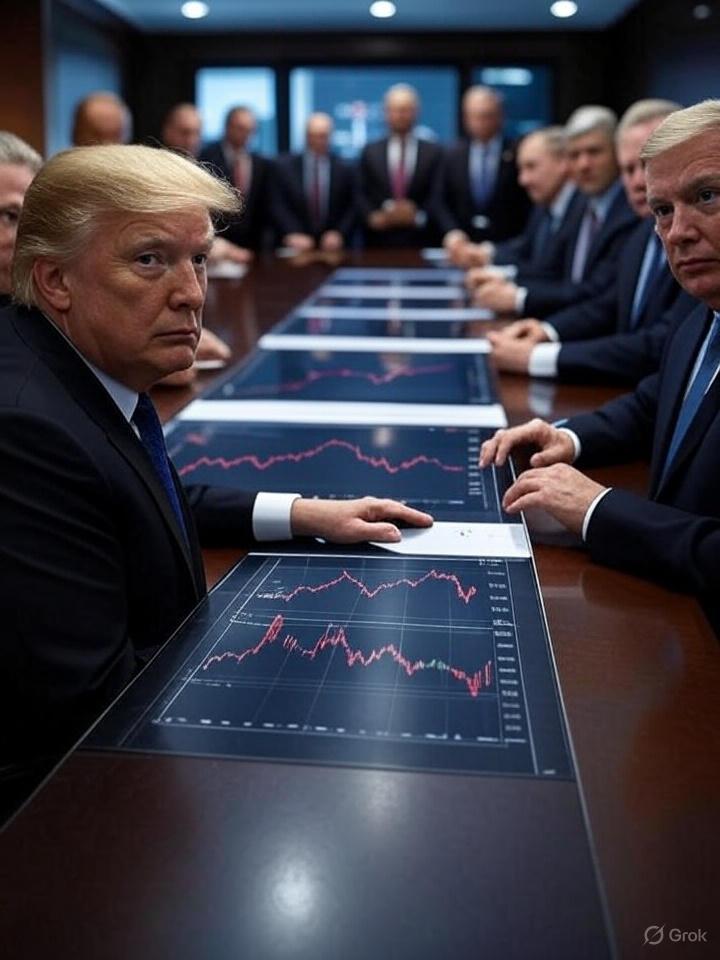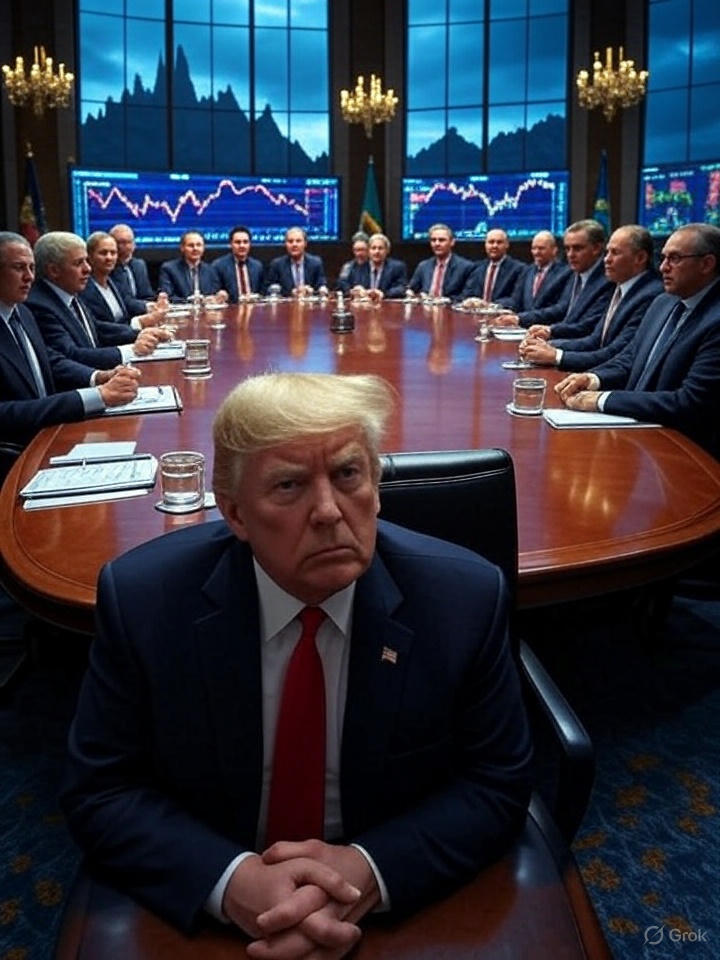Trump’s tariffs Threats Dominate the G20 Agenda
At the G20 finance ministers and central bank governors meeting held July 17–18, 2025 in Durban, South Africa, U.S. President Donald Trump’s tariff proposals loomed large. He’s floated global tariffs ranging from 10% to 50% across a broad swath of imports—including steel, aluminum, autos, and pharmaceuticals—with potential new levies aimed at BRICS nations and Europe, set to take effect August 1 (Reuters).
These aggressive policy moves have stirred mounting market uncertainty and prompted significant Fitch forecasts, raising U.S. effective tariffs to around 19.4% (Reuters). Concerns are widespread: Germany’s Bundesbank president warns that a 30% European tariff could tip the continent into recession, while Japan’s finance chief criticized tariffs as an ineffective tool for trade balancing (Reuters, Anadolu Ajansı, Reuters, Anadolu Ajansı). South African Governor Lesetja Kganyago lamented that “Trump’s tariffs have made forecasting a central bankers’ nightmare” (News24).
Multilateralism at Risk Amid Trade Turbulence
South Africa’s Finance Minister Enoch Godongwana called for renewed global leadership, urging G20 members to resist protectionism and strengthen multilateral cooperation (Yahoo). The G20 communique, however, was deliberately cautious: it replaced explicit mentions of tariffs with a more generalized reference to “trade tensions” and sidestepped key geopolitical flashpoints such as climate change, Ukraine, or Israel-Hamas (Reuters).
The absence of U.S. Treasury Secretary Scott Bessent—who also skipped a prior Cape Town session—was seen as emblematic of U.S. disengagement, though Acting Undersecretary Michael Kaplan stood in (Financial Times). Despite his absence, U.S. officials have stated intentions to streamline future G20 engagement as Washington leads the G20 presidency starting November (Financial Times).
Underlying Concerns: Debt, Growth, and Global Stability
The IMF attended the meeting, warning that while economic growth forecasts may edge upward by late July, trade tensions remain a key risk (Reuters). Emerging and developing countries, especially in Africa, are under strain from combined pressures: rising tariffs, high capital costs, and over US$800 billion in external debt burdens among sub-Saharan economies (Reuters).
Moreover, G20 leaders emphasized preserving central bank independence, a recurrent theme, as they defend against political interference—especially from Trump’s tariffs direct criticism of Fed Chair Jerome Powell (The Guardian).
India, Europe, and G7 Voices
In parallel, Germany’s finance minister Lars Klingbeil urged resolution of the tariff conflict by August 1, threatening the EU’s anti-coercion instrument and reaffirming readiness for countermeasures (Reuters). The G7 subset also called for an end to the tariff war, avoiding threats but signaling growing alarm among developed economies (Reuters).
Meanwhile, Japanese Finance Minister Katsunobu Kato cautioned that trade barriers, specifically tariffs, are an inappropriate instrument for redressing trade imbalances (Anadolu Ajansı).

Outcomes: Cautious Consensus in a Divided Room
Despite the tension, the G20 meeting concluded with tentative optimism. Delegates expressed hope of crafting a communique emphasizing trade stability, debt transparency, and central bank autonomy (The Economic Times). Still, Trump’s tariffs overshadowed dialogue, risking deeper divisions and fragmentation within the forum (The Economic Times).
South Africa, as host and now G20 president, faces an uphill task navigating these global fractures—especially as it advocates for climate finance, African debt relief, and infrastructure investment (Reuters).
Conclusion
The Durban G20 finance meeting highlighted the growing tension between unilateral trade actions and multilateral stability. Trump’s sweeping tariff proposals have injected serious uncertainty into global markets, alarmed finance chiefs across G7 and emerging nations, and made consensus-building at international forums more fraught. While the communique stopped short of direct confrontation, it stressed the need for renewed cooperation, clear trade architecture via the WTO, debt relief, and preserving central bank independence. Still, with uncertainty looming ahead, delaying tariff implementation and diplomatic compromise will be key for maintaining global economic resilience.

